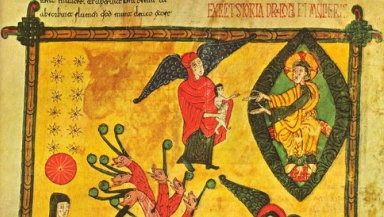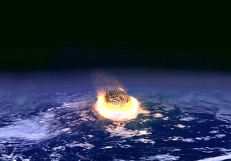
Just who is the Antichrist?
A previous generation of evangelicals would have had not difficulty answering that: it's the Pope, or the papacy in general. The virulence of anti-Catholic feeling in years gone by – cheerfully reciprocated by many Catholics – is quite startling, but it's largely died away. In fact evangelicals rather like Pope Francis.
Throughout history there have been various candidates, including Peter the Great, Napoleon, Hitler and Stalin. It's surprising how many people today think the Antichrist is President Obama or Hillary Clinton.
According to a new survey by the Southern Baptist Convention's LifeWay Research, whoever they identify as the likeliest candidate, by far the most popular view among Protestant pastors is that the Antichrist is a real figure, a false Messiah who will arise at some point in the future.
Nearly half hold to that view, while others say there is no individual Antichrist (12 per cent), or that he is a personification of evil (14 per cent) or an institution (seven per cent). Six per cent say the Antichrist has already been here.
However, the 'Antichrist is future' view is heavily skewed towards Baptists and Pentecostals (75 and 83 per cent respectively), with Lutherans, Methodists and Presbyterian/Reformed pastors far less likely to believe it.
It's also noteworthy that the more educated a pastor is, the less likely he or she is to believe in a future Antichrist.
But who or what is the Antichrist, and is it sensible to think in terms of a future event at all?
Attitudes to this question have been strongly influenced by the "premillenialist" theology of JN Darby and others in the 19th century. Based on an ingenious reading of "apocalyptic" books of the Bible, which speak in highly symbolic terms of the "end times" and the victory of God over evil, this teaches that Christ will come and institute a thousand-year reign on earth after a time of 'tribulation'.
But Bible scholars point out that the 'Antichrist' of novels like the notorious Left Behind series of books by Tim LaHaye and Jerry B Jenkins has no biblical basis at all.
Often assumed to appear in the book of Revelation, in fact the word only appears in John's first and second letters (1 John 4:3 and 2 John 7) where it is used of people who don't believe Jesus is God come in the flesh. In those verses 'anti' means "taking the place of" rather than "opposing".
But 'Antichrist' is often identified with the "man of lawlessness" in 2 Thessalonians 2:3-4. In verse 4 this says: "He will oppose and will exalt himself over everything that is called God or is worshipped, so that he sets himself up in God's temple, proclaiming himself to be God." Whether Paul has in mind a spiritual power or an actual figure – perhaps the Emperor Caligula, who declared himself to be divine – is uncertain.
However, many Bible scholars today are sceptical about this way of approaching scripture. Rev Dr Ian Paul, who has written extensively on Revelation, criticised the 'premillenialist' approach, telling Christian Today: "All these things are created by a jigsaw puzzle approach to Scripture where different bits are forced together to make a new picture."
And Rev Dr Simon Woodman, author of The Book of Revelation (SCM, £25) told Christian Today: "We should read apocalyptic in the same way we read science fiction – just as science fiction takes an imaginary other world and uses it to reimagine the world as we actually live it.
"I don't think it predicts or prophesies the future. It offers another way of living in the world now."
Woodman believes we shouldn't look for detailed predictions of what's to come from this kind of literature. Instead we should look for metaphors and images that spoke to the people of the time and can still speak to us today.
And according to another scholar, Dr Marion Carson, focusing on an 'Antichrist' who's yet to come distracts us from focusing on the evils that are much closer to home. If we imagine there's an evil Antichrist who will come to oppose the Church in the future, we don't think about the antichrists who are already at work. Writing for the BMS Mission Catalyst, Carson says: "We would do well to return to the Johannine letters and heed the warnings that the antichrist — resistance to Christ — comes from within the Church itself."
She continues: "This, of course, is not to say that there is not evil in the world, and that Christians should not name it as such when they see it. But it is a salutary warning that it is always easier, and more psychologically satisfying, to point the finger at others than to examine ourselves."
Follow Mark Woods on Twitter: @RevMarkWoods
















